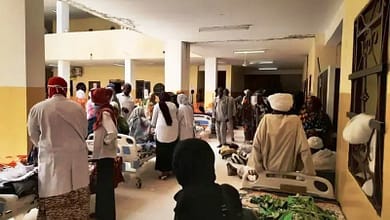Sudan says RSF committed 500 rapes, used sexual slavery as weapon of war

November 24, 2024 (PORT SUDAN) – Sudan accused the paramilitary Rapid Support Forces (RSF) on Sunday of committing at least 500 rapes and other abuses, including sexual slavery, against women and girls since the conflict erupted in April.
In a statement marking the International Day for the Elimination of Violence against Women, Sudan’s foreign ministry said “official authorities and relevant organizations” had documented the crimes, adding that the actual number of victims was likely far higher.
The ministry said the RSF had not conducted credible investigations into the abuses committed by its fighters, which also included genocide, forced displacement and attacks on civilians.
“The militia uses rape as a weapon of war to force citizens to evacuate their villages and homes, to settle its mercenaries and punish communities that reject its presence,” the statement said.
It accused the RSF of kidnapping and holding hundreds of women hostage, subjecting them to sexual exploitation and forced domestic labour. Girls were also being trafficked within and outside of Sudan, it said.
The RSF did not immediately respond to a request for comment. Sudan Tribune was unable to verify the ministry’s claims independently.
The conflict between the RSF and Sudan’s army has raged since April 15, killing thousands and displacing millions. Both sides have traded accusations of atrocities, but the RSF has been widely documented committing abuses against civilians.
The foreign ministry called on the international community to take action against the RSF and its backers, accusing them of providing military, financial and political support.
“The countries and groups supporting the militia… are partners in these crimes,” the statement said.
Sudan has filed a complaint with the U.N. Security Council against the United Arab Emirates, accusing it of supplying the RSF with weapons, mercenaries and funding via Chad. Chad has also faced a similar complaint before the African Union.
Source link




